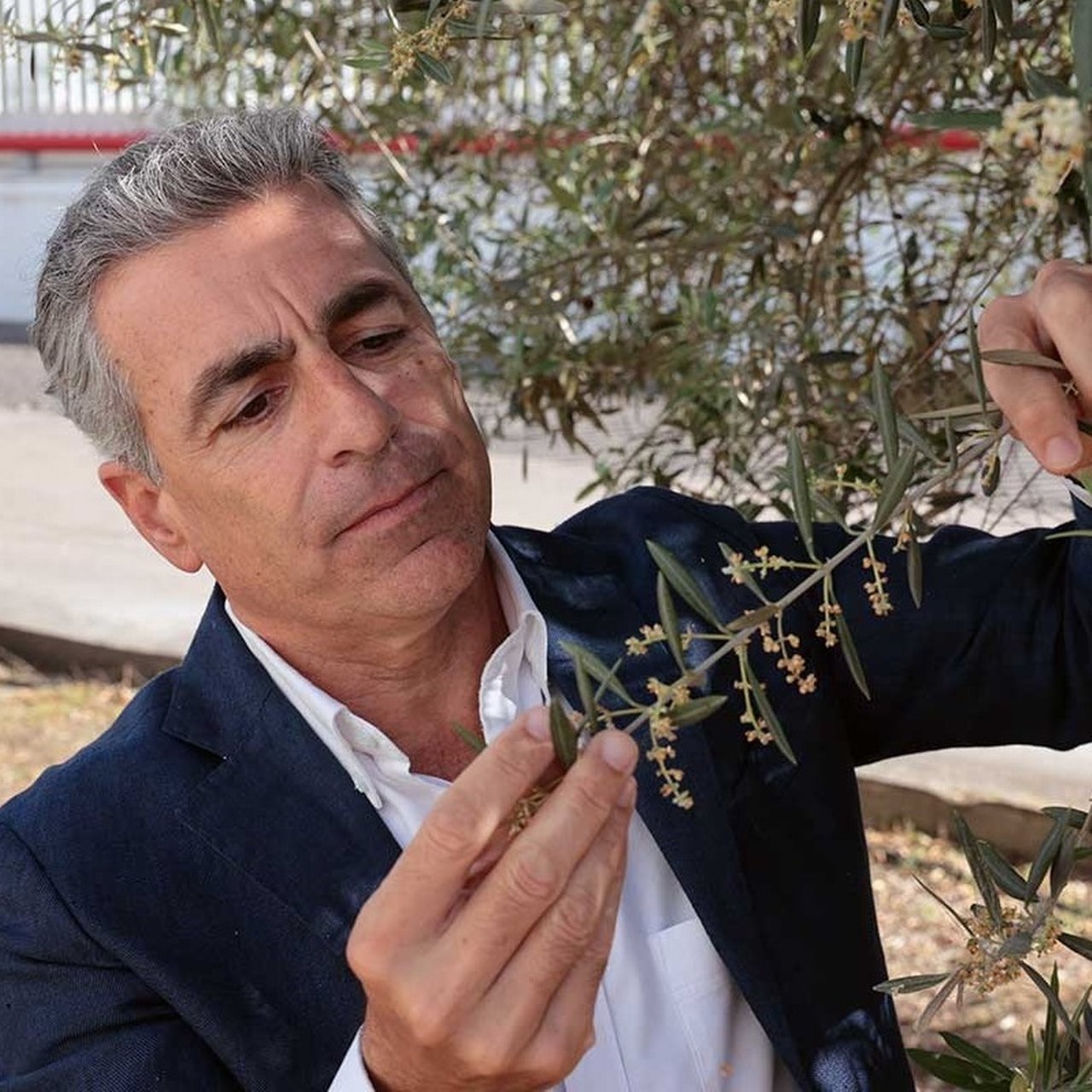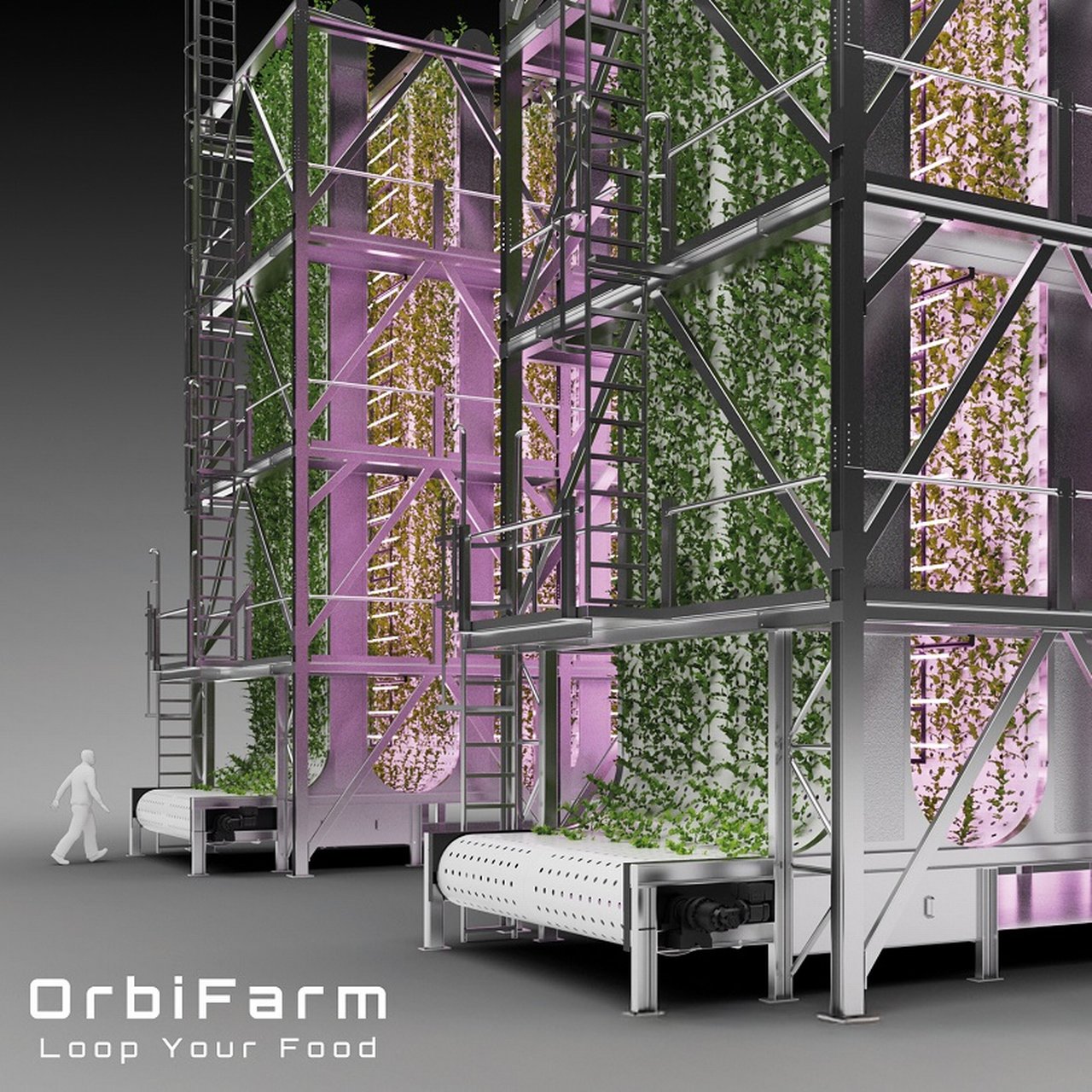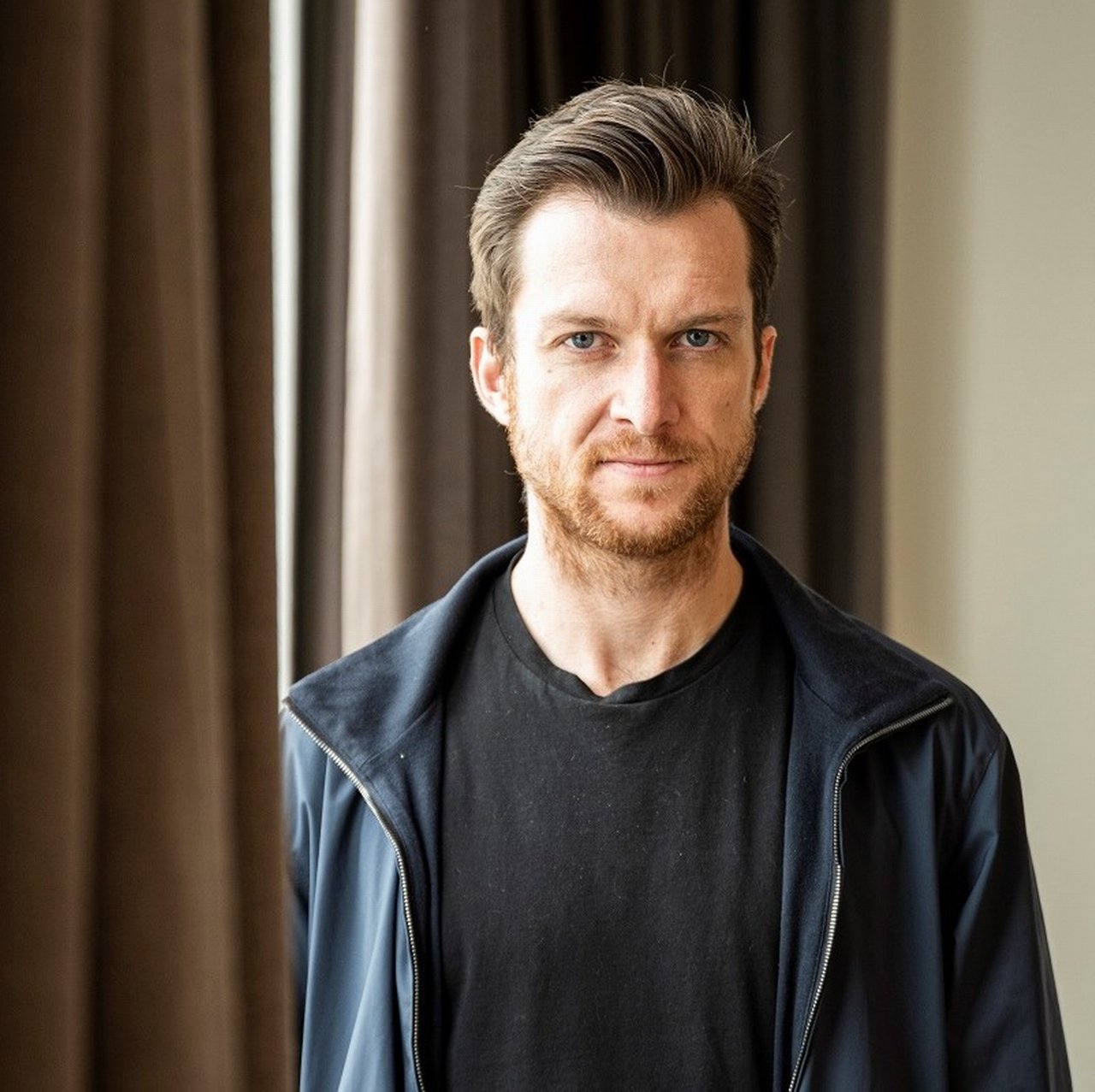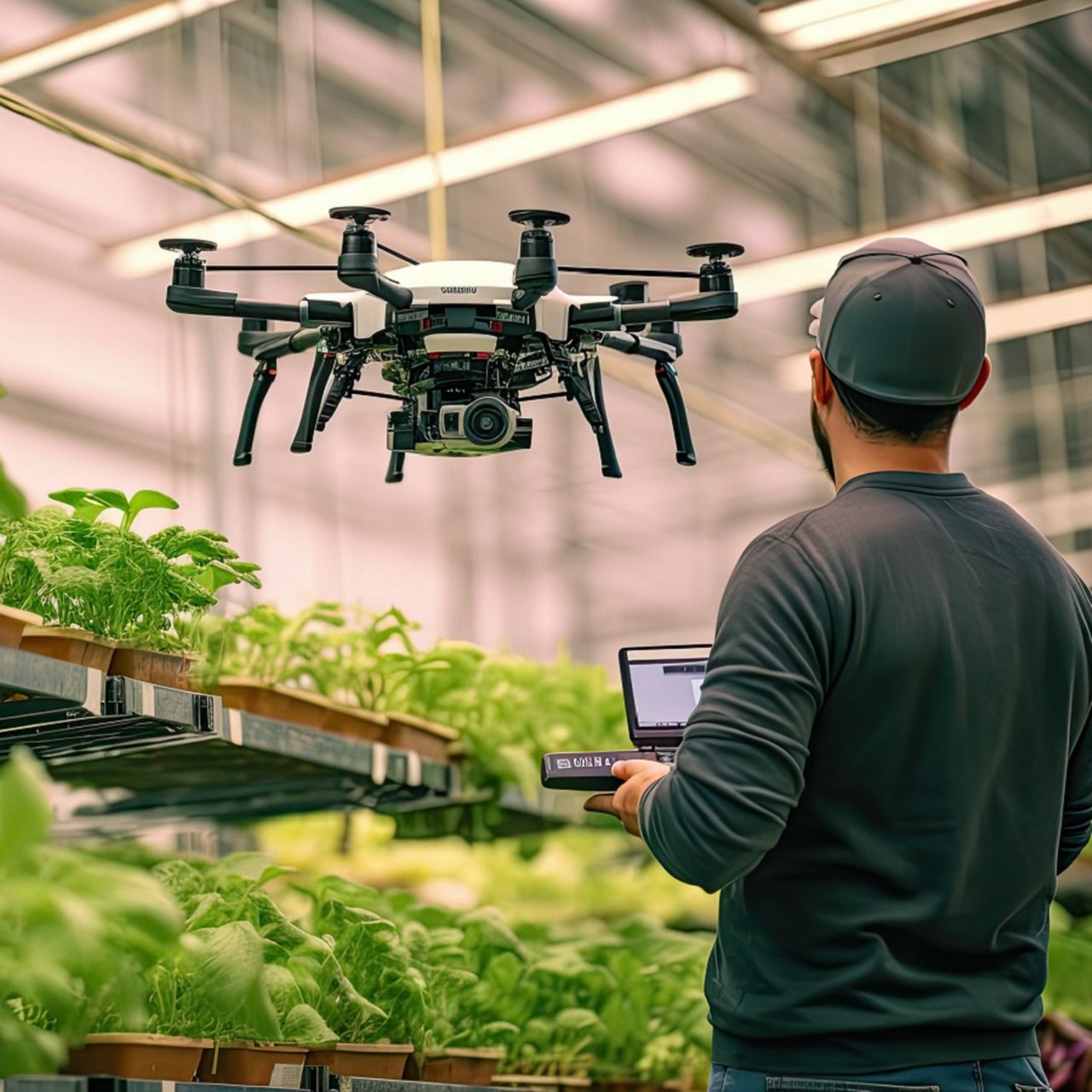
Assembly-line proteins
Peas without soil, olive oil with AI, drinking instead of chewing: how companies are working on the food of the future. And what climate change and consumer convenience have to do with it.
What do peas, amaranth, quinoa, hemp and okra have in common? These crops all promise a bright future – at least if you ask Jan Bredack. The CEO of Veganz Group wants to significantly expand the business model of his listed group – through his newly founded subsidiary OrbiFarm.
Veganz started in 2011 as a supermarket for vegan products in Berlin's trendy Prenzlauer Berg district. Now Bredack wants to operate indoor farming on an industrial scale. More precisely: to research, develop, patent, produce and distribute this technology.
We want to produce high-quality staple foods and medicinal plants all over the world, regardless of climate and environmental influences, cost-effectively and economically – in a hall.
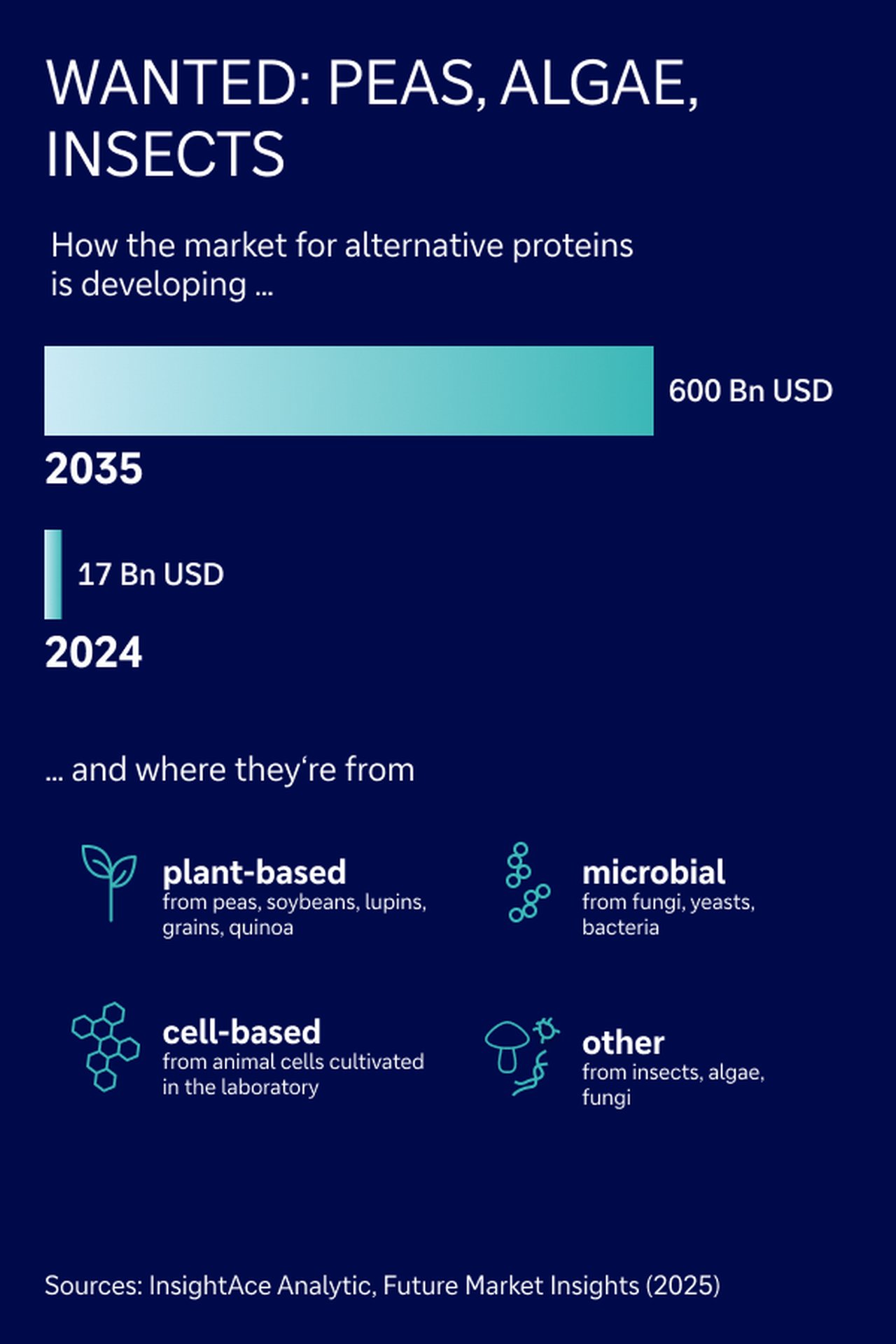
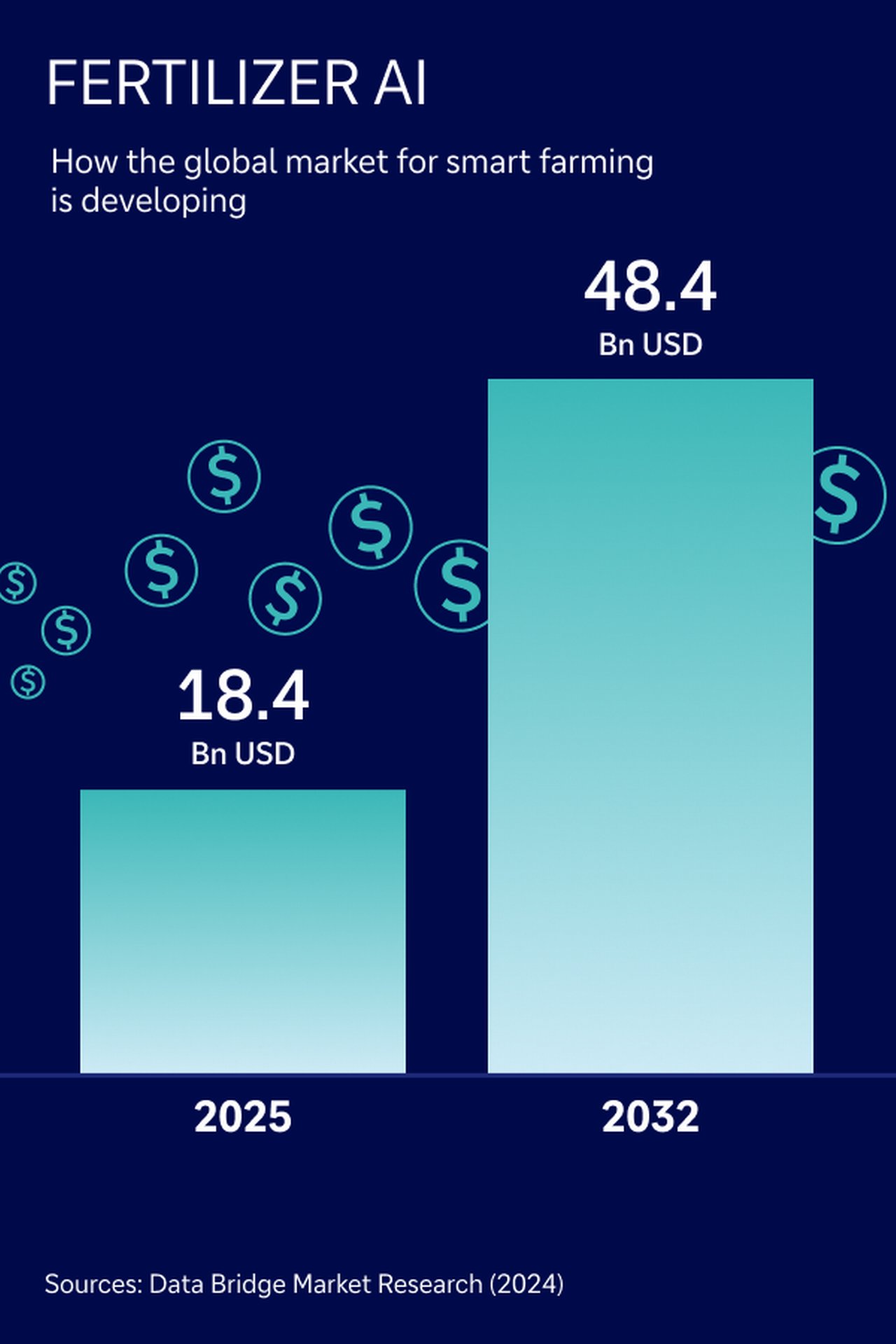
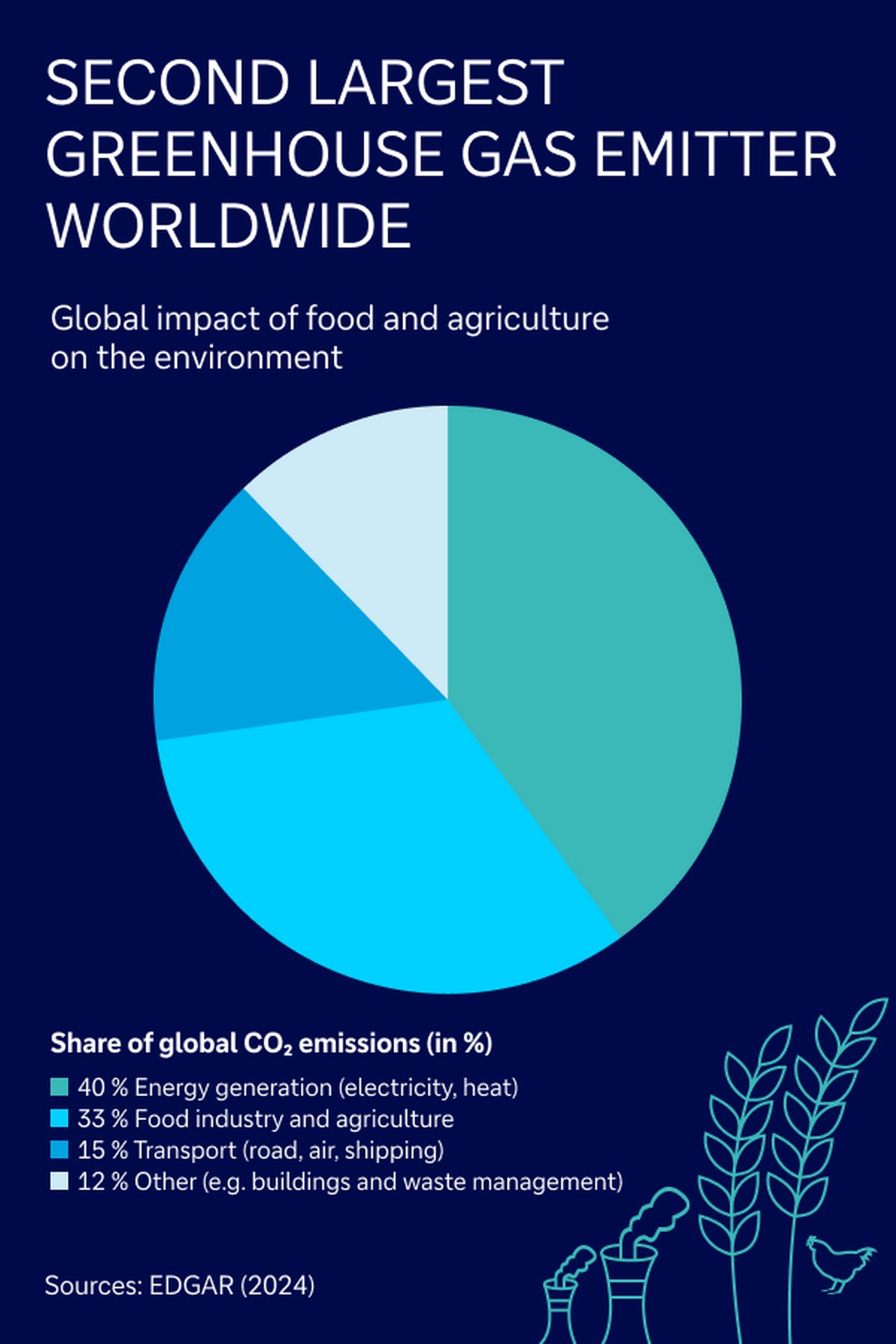
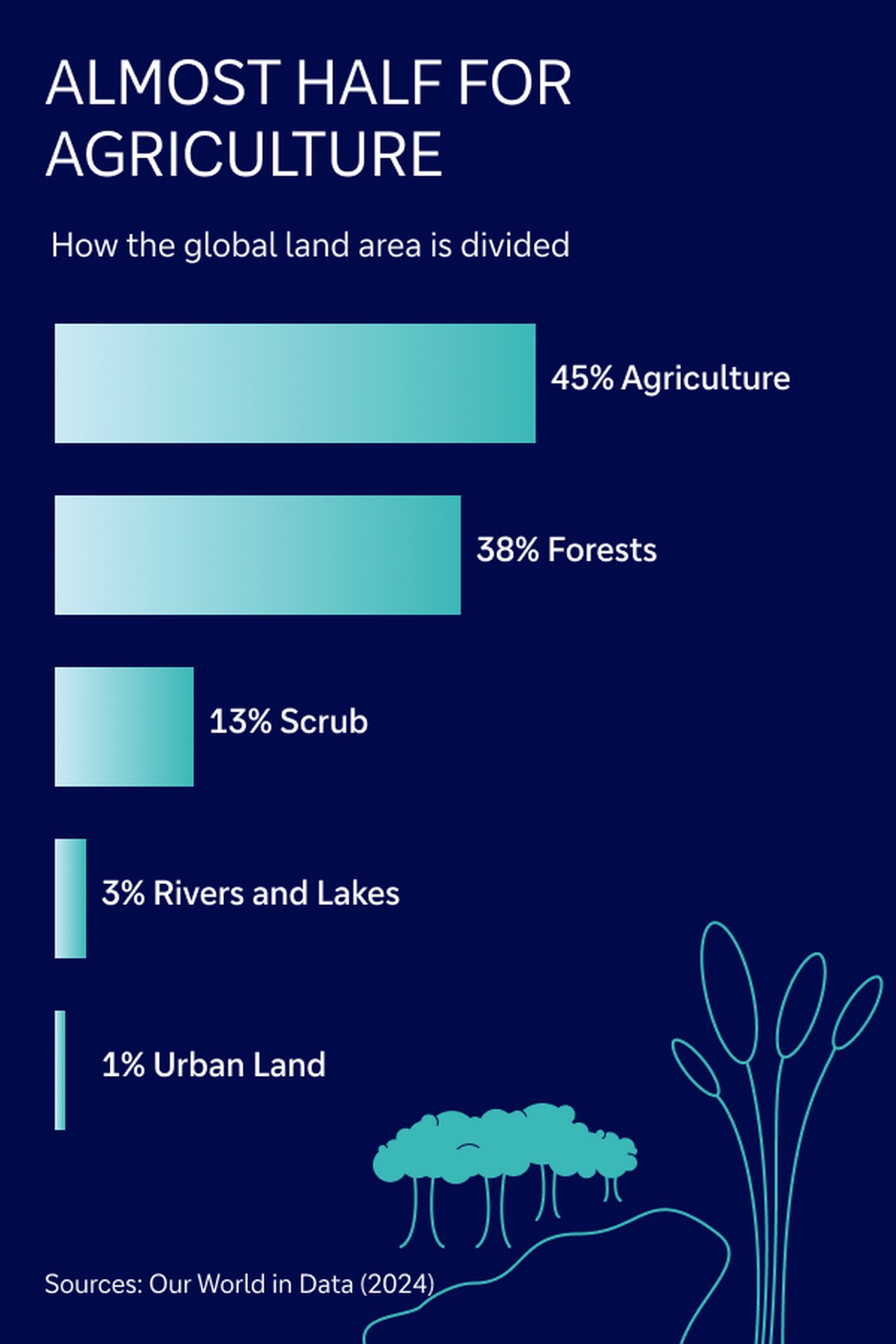
Protein plants are a focus area for OrbiFarm: "We want to produce high-quality staple foods and medicinal plants all over the world, regardless of climate and environmental influences, cost-effectively and economically – in a hall,” says Bredack.
Future market: alternative proteins
Bredack's optimism is based, on the one hand, on the results of recent cultivation trials at the Fraunhofer Institute with pea plants that grow with the help of a special nutrient solution, but without soil. And whose yield, according to the company, is ”up to 36 times higher than with conventional cultivation“.
On the other hand, Bredack is relying on a strongly growing segment: according to various market research groups, the business for alternative proteins had already reached a volume of between 17 and 23 billion US dollars in 2024 – with the chance of high development potential. According to Future Market Insights, the market could virtually explode to just under 600 billion dollars by 2035.
This example shows: companies from agriculture and the food industry are working hard to ensure that we can continue to feed ourselves in the future. Whether proteins from the assembly line, drinking instead of chewing, or quinoa instead of currywurst – like Veganz, many other companies are also pursuing new paths. Agricultural machinery manufacturer Claas, for example, is opening the way for its customers to access high-performance precision agriculture with digitally networked tractors and combine harvesters as well as automated documentation.
The Spanish family business Acesur, known for its olive oil brands Coosur and La Espanola, is optimising production processes and quality assurance with AI-supported data analysis, among other things. The Munich-based start-up yfood develops, produces and distributes high-quality drink meals and snacks as a time-saving alternative to home-cooked meals.
The triggers for these developments are manifold:
- The world population is continuing to grow fast; by 2050, around 10 billion people will live on Earth.
- One third of human-made greenhouse gases are generated around food, according to surveys by the Emissions Database for Global Atmospheric Research (EDGAR).
- The hidden costs of the global food system totalled more than 138 trillion dollars between 2016 and spring 2025, caused by greenhouse gases, freshwater consumption, land use change, nitrate emissions, malnutrition, poverty and unhealthy diets. These costs are rising very quickly – open-ended, as the ticking counter of the ”Food System Economics Commission” (FSEC) clearly shows.
- The same commission has calculated that diseases attributable to our conventional food industry reduce global value creation by more than 11 trillion dollars annually. And thus by more than the industry contributes to gross domestic product. A shift towards more sustainable food production could at least halve these costs, according to the FSEC.
- Increasing weather extremes such as droughts and floods are making the cultivation of agricultural land increasingly unpredictable.
- The available arable land per capita is decreasing worldwide.
- Changing eating habits – ”food trends“, often triggered by social media posts – make it more difficult to ensure the supply of the food in demand.
Challenges that raise numerous questions:
- How can we improve farming methods to maintain soil quality and promote biodiversity?
- Which production processes cause less environmental damage?
- What new methods can we use to produce food efficiently, sustainably and socially equitably?
- What demands do consumers place on the quality, tolerability, production conditions, availability and cost of a sustainable and healthy diet?
Billions invested in a sustainable food system
To find answers to these questions, companies, farmers and governments worldwide are investing billions of dollars in research and development of innovative, sustainable production methods and new products. According to the Agricultural Barometer of Rentenbank, two out of three farmers in Germany want to make targeted investments in 2025, primarily in a better CO₂ balance, resource efficiency and digitalisation. The EU is providing up to 90 billion US dollars (converted from euros) between 2020 and 2050 for more sustainable, climate-adapted food systems and the circular economy.
Nutrition is used as a weapon of war.
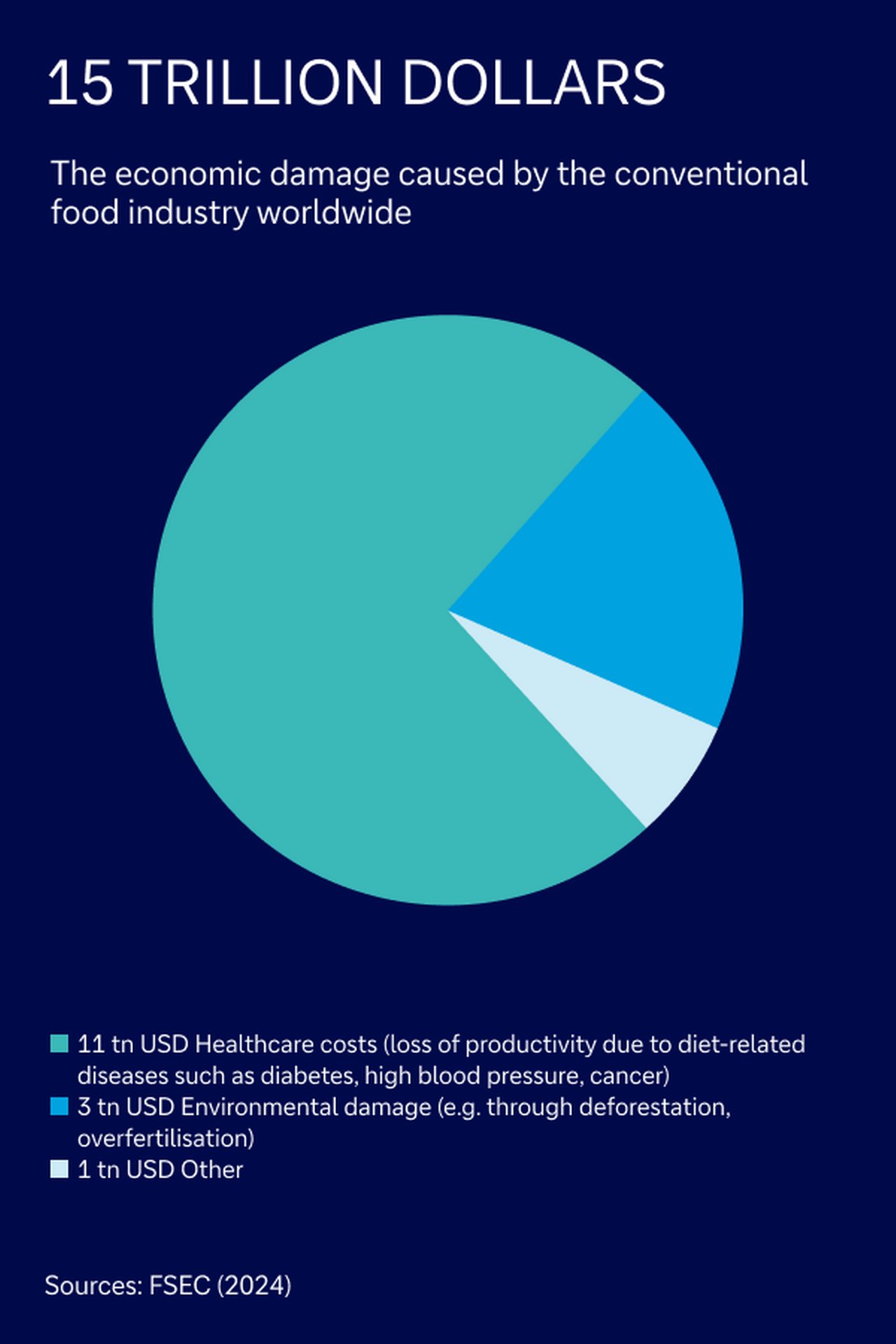
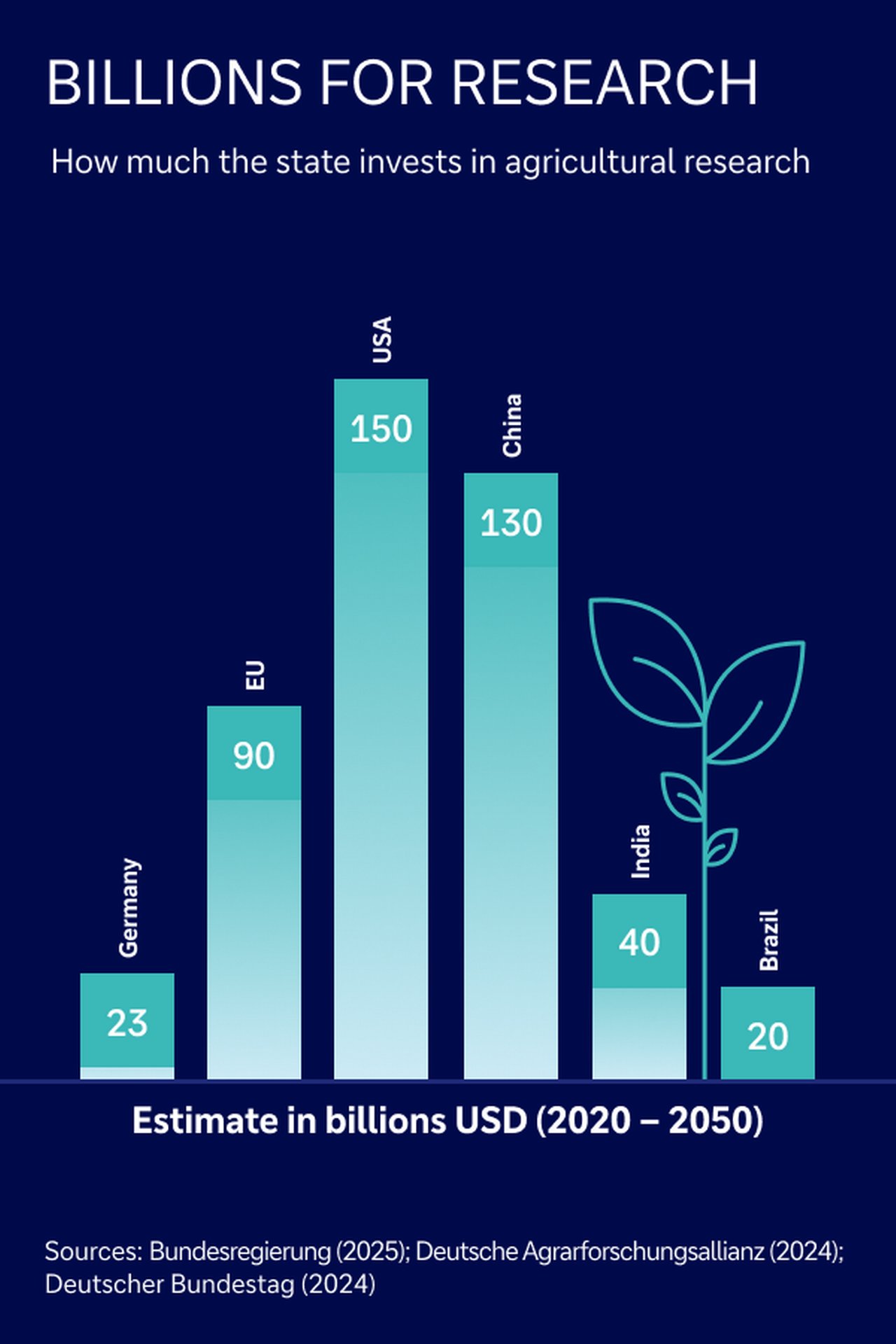
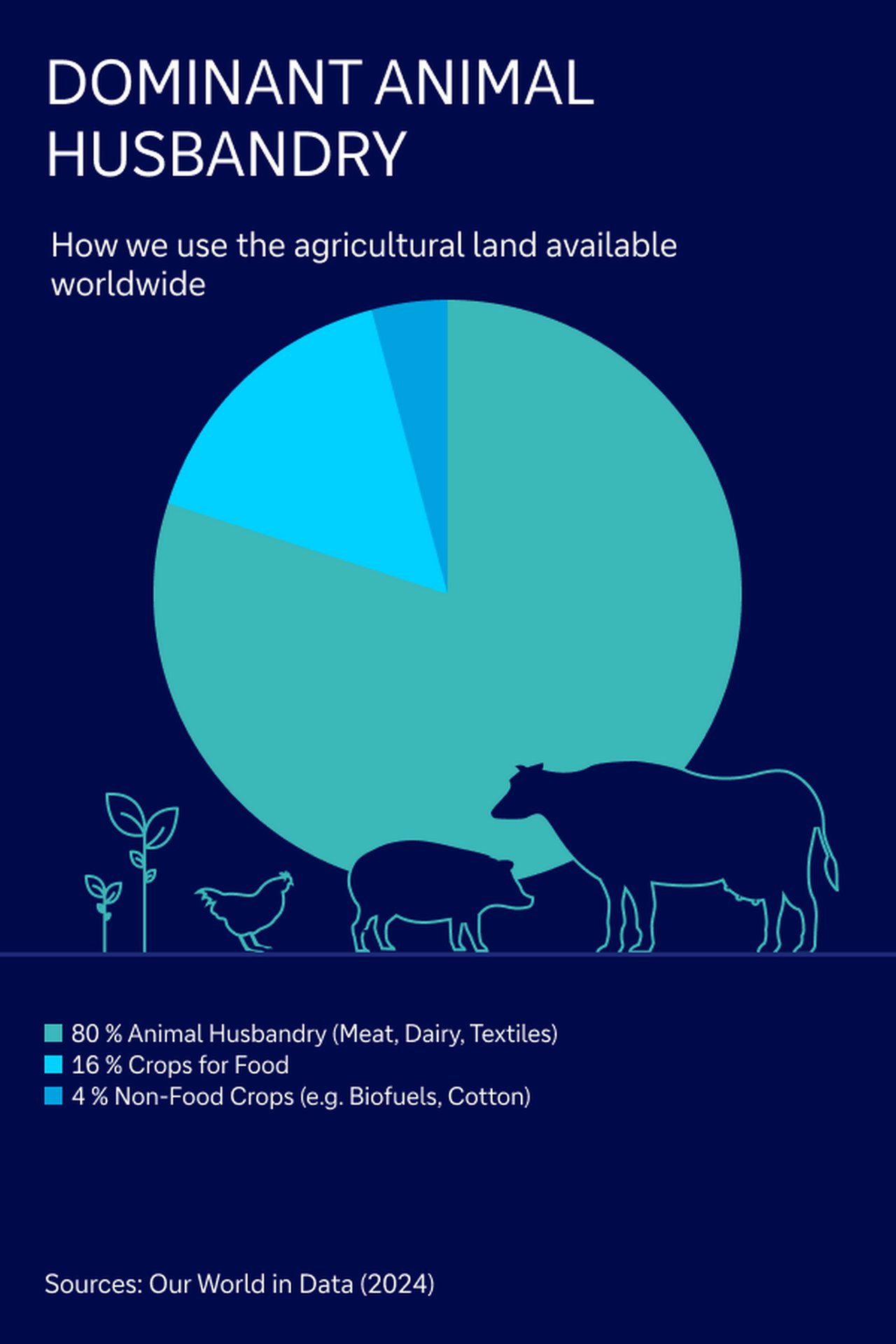
Many countries are increasing their respective budgets, India, for example, wants to invest the equivalent of around 40 billion US dollars in the same period, China up to 130 billion US dollars and the US 150 billion US dollars. And this is also urgently needed: forecasts also assume that in 2050, annual investments of around 100 billion US dollars in agriculture and food production will be needed worldwide to ensure sustainable nutrition worldwide.
Weapon of world politics
And even in geopolitics, nutrition plays a relevant role: ”It is used as a weapon of war,” says Jessica Fanzo, professor of climate issues at Columbia University in the US. ”People are deliberately cut off from food supplies in trade wars, tariff disputes or export bans.” The consequence: 40 percent of the world's population – around 2.8 billion people – simply cannot afford a healthy diet.
Will we soon only eat vegan?
In view of this complex situation, more and more people are thinking very fundamentally about the economic, health and ecological consequences of their own diet – for themselves and our planet. This is shown by a look at a (non-representative) global survey of Deutsche Bank’s workforce. For our colleague Moritz Vossel, for example, there is only one future in terms of nutrition: vegan. ”I didn't want animals to suffer for my consumption.” He doesn't have to do without anything because of this, ”after all, there are excellent substitute products.” Many of our colleagues are also aware that the key to a healthy diet is ”cooking yourself“. But ”that takes time, from shopping to preparation,“ says Janine Mueller.
We offer a complete and simple alternative for situations where there is little time to eat a balanced diet.
Benjamin Kremer and Noel Bollmann are counting on customers like her. ”Healthy eating in everyday life is not always easy,” the founders of yfood know. And they want to remedy this with their start-up for ”Smart Food”. Their offer: a product range of drinks and shakes, bars and hot bowls. The young company's claim: ”a complete and simple alternative for situations where there is little time to eat a balanced diet”.
The founders quickly realised that the demand for this is far greater than the initially targeted busy office workers. Whether a doctor or long-distance lorry driver – the need to eat a balanced diet without any effort is shared by many people. This is why the team has also adapted its marketing: after initial attempts with a truck driver influencer and a focus on male customers, the founders are now focusing on mass media to reach a wider population. “We are now a unisex brand,” says CEO Bollmann. And firmly established in German retail – through cooperations with major retailers REWE, Edeka, Kaufland, Rossmann and Müller. But it shouldn't stop there: ”Our dream would be to be found both in the supermarket in Los Angeles and in a 7/11 in Shanghai.”
There are many innovations in the entire food sector that will soon become extremely important. The challenge is to scale these technologies and invest in them on a large scale.
Investing in innovation is mandatory
Whether we are talking about practical, nutritious liquid food, AI-based production processes, vertical farming or biological fertilisers, whether about Germany, Europe, Asia or the US: ”There are many innovations in the entire food sector that will soon become extremely important,” says professor Fanzo of Columbia University – also with regard to the role of banks. ”The challenge is to scale these technologies and invest in them on a large scale.”
This page was published in July 2025.
Recommended content
Entrepreneurial Success | Video & Photo Story
Acesur: When Innovation is your DNA Acesur: When innovation is your DNA
Artificial intelligence, data-based decisions, biodegradable packaging: How a traditional Spanish family business is revolutionising the olive oil business.
Entrepreneurial Success | Story
Grows even in the desert Grows even in the desert
Veganz founder Jan Bredack is on a mission to feed the world by producing plant-based protein on an industrial scale.
This vision will become reality with OrbiFarm®. Here’s how.
Entrepreneurial Success | Photo Story
“First, we had to explain to people that this is food" “First, we had to explain to people that this is food”
When Noel Bollmann and Benjamin Kremer founded yfood in 2017 they had to explain their signature product a lot. Noel Bollmann about future plans and the expansion to the US.

